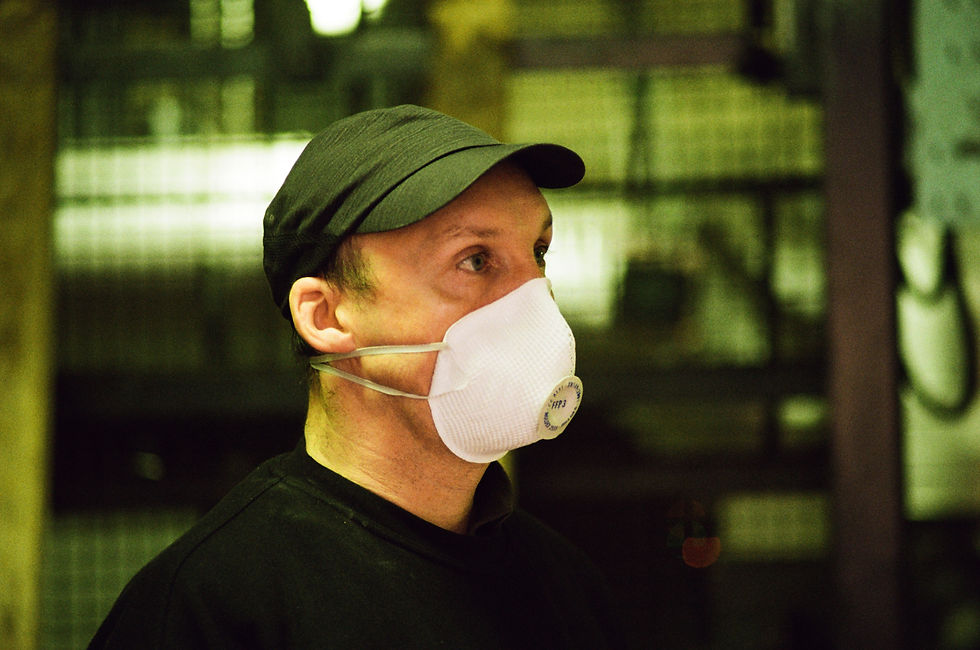Cleaner Cremations for a Greener London
- Lydia Porritt

- Jul 12, 2023
- 3 min read
Updated: Nov 2, 2023
Bereavement Services, Lambeth cut dangerous gases produced by cremations by up to 80%

As we become ever more aware of the possibility of a looming climate crisis, an increasing number of sectors are reflecting on how they can reduce their negative impact on the planet.
The bereavement sector is no exception.
A key example of this is cremation, which emits the same chemicals as diesel cars.
According to Pharos, one cremation can emit up to 500g of NOx gas. ‘NOx’ is an umbrella term for a family of gases: nitrogen oxides, the most widely known being nitrogen monoxide (NO) and nitrogen dioxide (NO2).
Nitrogen monoxide is usually released during the combustion of fossil fuels and can react with other atmospheric gases, forming nitrogen dioxide, a gaseous air pollutant which is detrimental to both the environment and health increasing the risk of cancer and respiratory diseases among other problems.

Most of the coffins used in cremations are made of chipboard or MDF, which, when burned also produce NOx gases. Funerals utilising coffins made from these materials emit the amount of NOx gas equivalent to a car driving approximately 2,280 miles.
Transport For London (TFL) claims that over 500,000 Londoners are asthmatic, half of which reside in outer London boroughs such as our own: Lambeth – and asthmatics are even more vulnerable to toxic air, stressing the need for action in London and the surrounding boroughs.
It is believed that air pollution is responsible for thousands of premature deaths in London annually, with the largest proportion occurring in outer London areas.

Although the bereavement sector is not a primary contributor to NOx emissions in the UK, Lambeth council has nonetheless been investigating ways to reduce emissions of these toxic gases.
In 2021, Bereavement Services Lambeth retrofitted new technology to cremators at West Norwood Crematorium, reducing NOx emissions by up to 80%.
We spoke with Crematorium Operator Stuart, who has worked at Bereavement Services for over two decades, about the new deNOx technology. The deNOx technology works with an existing filtration system which significantly reduces harmful chemicals and pollutants entering the atmosphere.

Before a cremation takes place, the aqueous solution Facticlear is injected into the cremator and sprayed onto the coffin. According to Stuart, the chemical Facticlear “attracts things that are harmful to the environment, such as mercury,” helping to prevent NOx emissions.

*Mercury is present in dental amalgam, the most common type of dental filling and thus released during some cremations.
The deNox technology “stops [harmful chemicals] from reaching the flume before it even gets to the filter [system]”. Any chemicals that are produced are collected and disposed of appropriately.
Stuart stressed the importance of making cremations as green as possible; “A lot of cemeteries are filling up [meaning] the number of cremations is only going to increase - [air] pollution is going to get worse”.
West Norwood is proud to be one of the first cemeteries to have deNOx technology in the UK and, according to Stuart, many more crematoriums “definitely will be” utilising it soon.

If you have any questions about this new technology or about more green initiatives in Lambeth please don’t hesitate to get in touch.
More info on other green initiatives by Lambeth:
https://www.lambeth.gov.uk/your-community/get-involved/community-groups-projects/freshview
*Due to the potential environmental complications, this type of filling is being phased out.
For more information on photography, copywriting, community journalism or digital services, contact us via email at contact@renegadeproduction.co.uk, call us on +44 7826 774 295 or +44 7913 563 083 - or use the simple form at the bottom of our homepage.





Comments